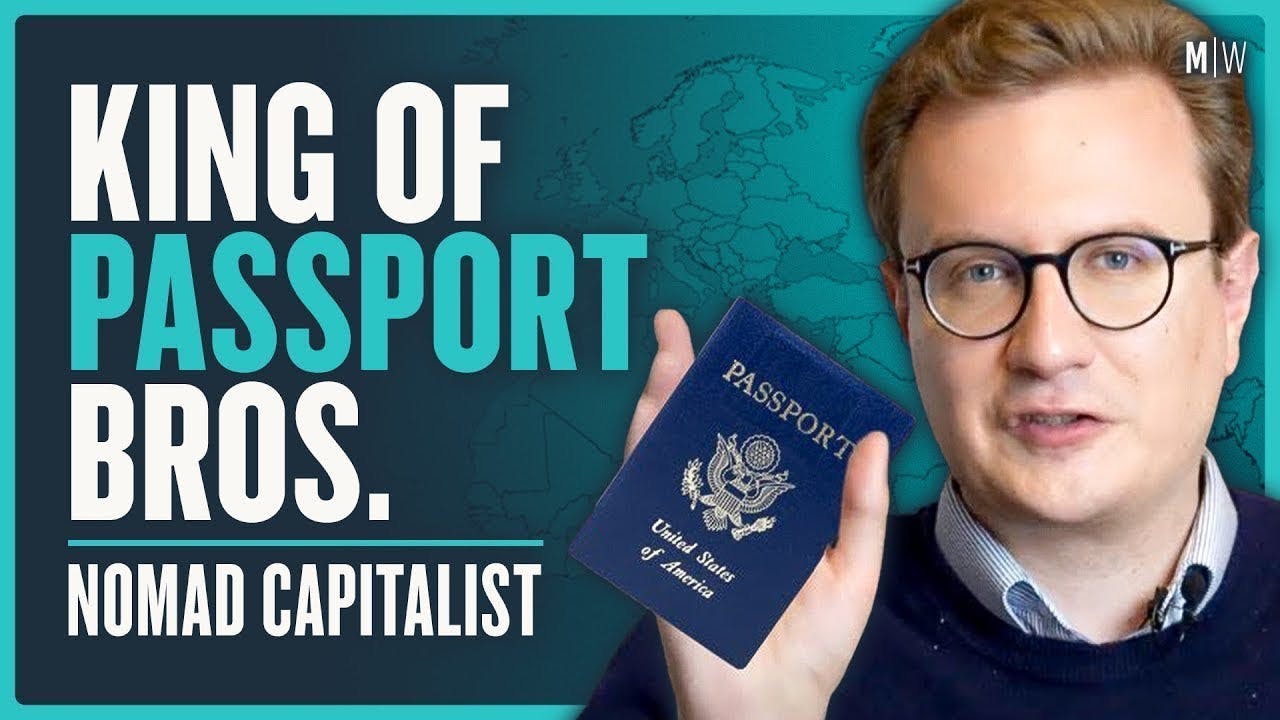How To Travel The World & Pay No Tax - Nomad Capitalist
05 Feb 2024 (almost 2 years ago)

Tax Optimization and Global Citizenship
- The speaker introduces himself as a professional who helps individuals reduce taxes, acquire dual citizenship, and explore opportunities worldwide.
- He believes that people in developed countries may be overpaying taxes and missing out on opportunities by not considering global citizenship.
- The speaker suggests adopting a global citizen mindset to access better opportunities, reduce tax burdens, and enjoy a more flexible lifestyle.
Cultural Adaptation and Challenges
- The speaker discusses cultural displacement and the challenges of adapting to different cultures while living abroad.
- He emphasizes the importance of kindness and politeness in different cultures and shares his experiences in Malaysia and Ireland.
Establishing a Global Presence
- The speaker mentions having multiple passports, bank accounts, and companies around the world to take advantage of different opportunities and benefits.
- He introduces the concept of "planting flags" by establishing a presence in various countries based on their strengths and opportunities.
Choosing a Location
- The speaker suggests considering various factors such as taxes, banking, dating, and personal preferences when choosing where to live and work.
- He believes that there are "knobs and levers" that individuals can adjust, such as country of residence, bank accounts, and tax status, to optimize their global lifestyle.
Geographic Arbitrage and Key Considerations
- The speaker discusses the concept of "geographic arbitrage" and how it can be used to optimize one's tax situation, quality of life, and business opportunities.
- Key factors to consider include tax rates, ability to invest, bank accounts, quality of life, company location, hiring practices, data storage, and precious metals storage.
Legal Statuses: Citizenship, Passports, Residency, and Visas
- Different types of legal statuses are explained, including citizenship, passports, residency, and visas.
- Citizens are entitled to get a passport, and there are various ways to obtain citizenship, such as through ancestry, investment, or naturalization.
- Residency permits allow individuals to live in a country for a certain period of time, and some countries offer citizenship after a certain number of years of residency.
US Citizenship-Based Taxation and Alternatives
- The US is ranked poorly in terms of tax and financial matters due to its high taxes on citizens regardless of where they live.
- Business owners can use offshore strategies to reduce their tax burden, but they still have to file and keep track of all the rules.
- Giving up US citizenship can provide access to more of one's company's capital and allow for more flexible real estate acquisition.
- Some countries, like Australia and Canada, are considering adopting similar citizenship and taxation policies as the US.
- The speaker expresses their discontent with the US citizenship-based taxation system, considering it unfair and offensive.
- They compare it to other countries like Norway and Eritrea, which have different approaches to taxing their citizens living abroad.
De Facto Citizenship-Based Taxation and Second Passports
- The speaker highlights the growing trend of countries implementing de facto versions of citizenship-based taxation, targeting digital nomads and individuals with no fixed base.
- They emphasize the importance of having second passports as a means to reduce tax burdens and access more favorable tax jurisdictions.
Renouncing US Citizenship and Exit Taxes
- The process of renouncing US citizenship involves visiting a US embassy overseas, ensuring that one has another passport to avoid statelessness, and potentially facing an exit tax if certain wealth and income thresholds are met.
- Canada and other countries also have exit taxes for non-residents, but they don't require individuals to give up their citizenship, making it easier to leave.
- The UK has different tests to determine tax liability based on connections and days spent in the country.
Tax Enforcement and Misconceptions
- The US, especially California, is more aggressive in tax enforcement compared to other countries.
- There are misconceptions about the lack of options for reducing taxes. Many countries offer lower tax rates or incentives for foreign residents.
- For Americans who don't want to renounce citizenship but want to lower taxes, options include moving to a low-tax jurisdiction, incorporating a business in a tax haven, and taking advantage of tax treaties or credits.
Passive Income and Tax Challenges
- Passive income can be a challenge, especially when it comes to selling a business for a high value.
- The Puerto Rico tax incentive requires living in Puerto Rico for more than half the year.
Global Citizen Strategies: Sandwich and Trifecta
- The speaker discusses the concept of the "global citizen sandwich" and the "trifecta strategy" for living in multiple locations.
- The trifecta strategy involves choosing three home bases and splitting time between them, allowing for a diverse range of experiences and business opportunities.
Lifestyle Considerations and Location Choices
- The speaker emphasizes the importance of considering lifestyle factors when choosing a location, such as the quality of life, cultural connections, and dating opportunities.
- Puerto Rico is mentioned as a potential location for